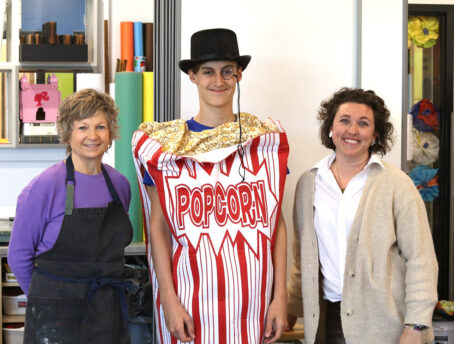
This past March, a group of rural-focused education majors at Monmouth College set out to immerse themselves in Place-Based Education. The Monmouth TARTANS, a Rural Teacher Corps that Rural Schools Collaborative helped launch, has centered the program’s pedagogy around the idea of utilizing the local community and environment as a basis for activities, lessons, and curricula. How those local resources will inform education necessarily will vary from place to place, and the TARTANS were headed somewhere defined by those characteristics: the Teton Range, just outside of Jackson, Wyoming, home of RSC Northern Rockies Regional Hub partner Teton Science Schools.
Place-based pedagogy asks students to consider how factors like the local economy are drawn from the natural resources of an area, and how community springs up and evolves around that shifting confluence. In the Tetons and Jackson Hole, exceptional amounts of snowfall for much of the year make the area a skiing and resort destination, enhanced by the natural beauty of the mountains. It also makes Jackson a challenging destination to access, and the TARTANS nearly never made it to Teton Science School: a snowstorm parked over Jackson for several days, waylaying the group of Monmouth students and faculty in Dallas. When they finally made it, their appreciation for the time spent together in the Tetons was all the greater.
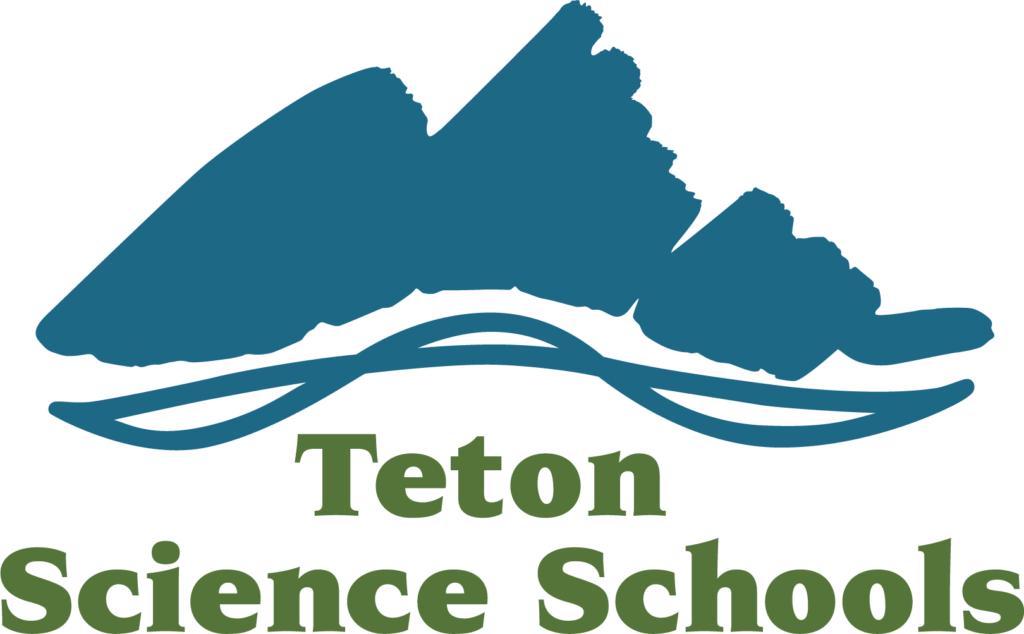
Teton Science Schools (TSS) and Monmouth College are two of Rural Schools Collaborative’s oldest partners. RSC and TSS worked together on building The Place Network, which introduces school leaders to Place-Based Education (PBE), and TSS has since grown to also work with other Rural Teacher Corps with the University of Wyoming and the Missouri-based Ozarks Teacher Corps. Monmouth College’s TARTANS program, which embraces PBE as a means of connecting rural students to their home communities, first visited TSS in 2019 before planning to come again in 2024.
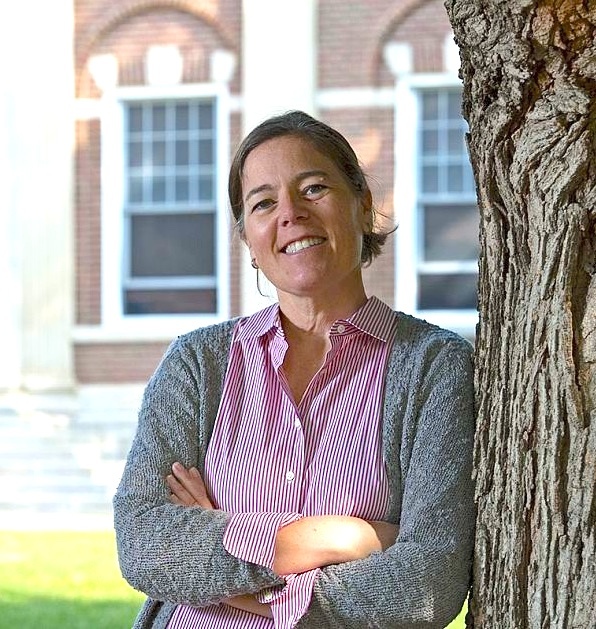
Tammy La Prad, an RSC Board member, Illinois Regional Hub lead, and Co-chair of Educational Studies at Monmouth College led the first trip and was excited to bring a new generation of students back to the Tetons. While they study Place-Based Education in the classroom and also meet with TSS staff virtually, the trip offers additional value: “One of the things that we saw from coming the first time is that actually being away from our own place helped us to see what place-based learning could be and then take what we learned from there and apply it to our own place.”
Leslie Cook, Head of Professional Learning at TSS and Northern Rockies Regional Hub lead, concurs: “We are able to leverage the inspiration of the Jackson Hole area with the parallels that we found to Monmouth and rural Illinois so that they can go home and look at their place with a fresh perspective and curiosity that they can bring into their teaching.” Leslie, along with her team at TSS, has been leading monthly sessions to prepare students for their trip and build foundational knowledge of PBE, which is views as a critical skill for educators: “When emergent educators get to learn about Place-Based Education as a part of their studies, it can be "just how teaching is done". It's a core model for teaching that's relevant and engaging for their students, and they can start using it as soon as they begin teaching.”
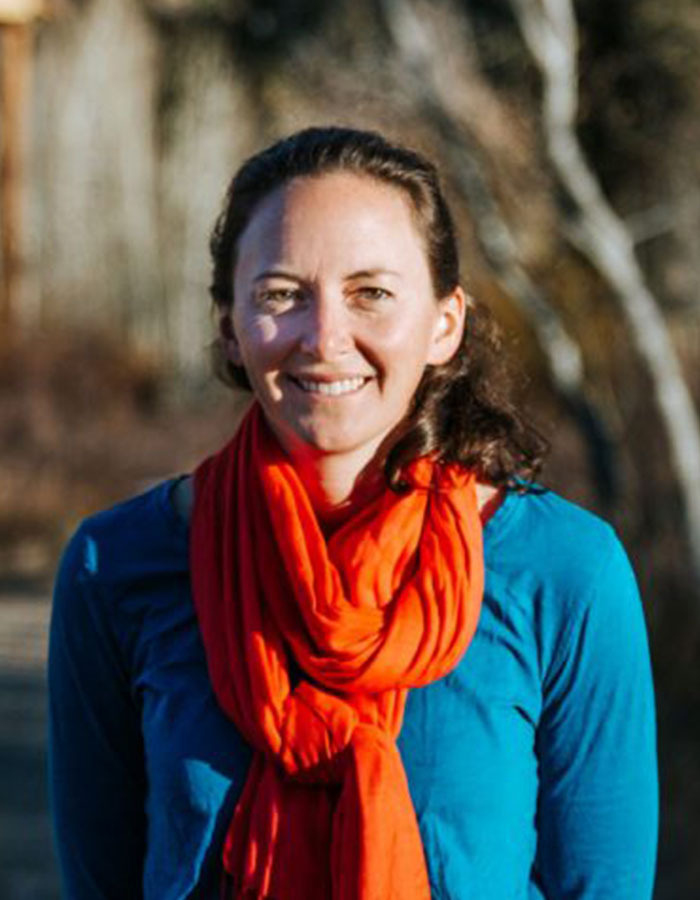
After shifting around schedules due to the storm, the trip kicked off with team-building amidst the snowy mountains and cold temperatures. The TARTANS are a mixture of sophomores, juniors and seniors, elementary and secondary education majors, and don’t all take classes together back in Monmouth. The trip, then, was also a chance to learn socially, sharing knowledge, ideas, and building relationships with other future rural educators. Abbie Johnson, a junior Elementary Education Major from La Harpe, Illinois, reflected that “I feel like we've grown even closer, even just in the last three days. . . this is an opportunity that you just have to experience. You can't really just do it through photos or videos or anything like that. Being here has just really opened my eyes to some really cool educational opportunities.” This is intentional, by design.
For younger students, the opportunity to learn from those who had already spent time student-teaching proved invaluable. Amelia Bennett, an Elementary Education Major and sophomore from Alexis, Ill, shared that “being a new TARTAN [I] didn't really know everybody. So I've been able to connect and learn with a lot more, especially the older students doing teaching or starting their practicum experience. They've been able to relate to us and connect to us and kind of even give us some insight about what we could be looking forward to.” For upperclassmen like Bethany Allen, a senior Elementary Education major from Monmouth, the trip has been equally satisfying: “Since the education department is so small at Monmouth we are really a tight knit group as it is. It has been really nice spending a whole bunch of time with my peers.”
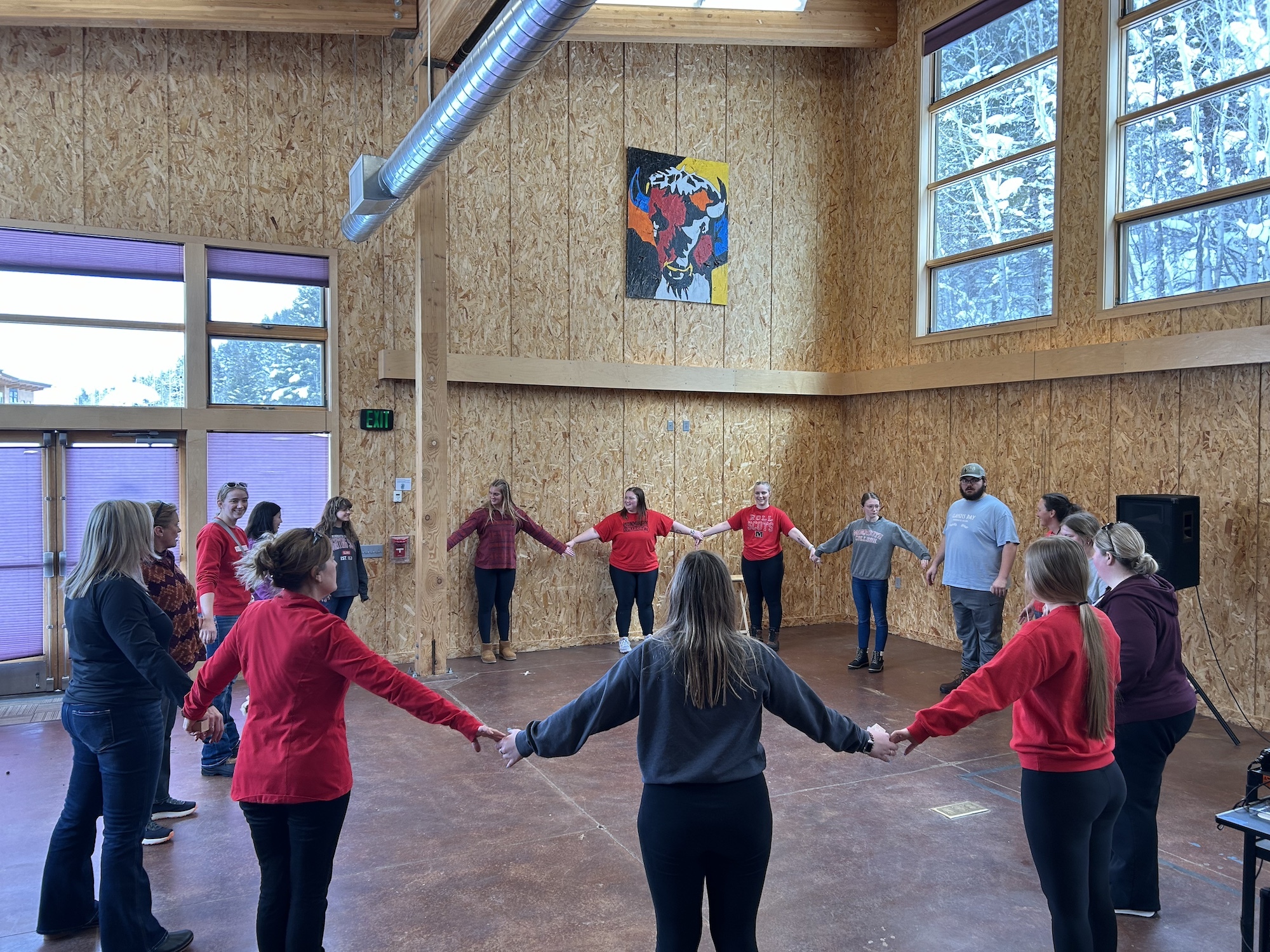
Day one of the trip featured an in-depth tour of the Teton Science School’s Jackson-based Mountain Academy School, which offered inspiring windows into ways in which teachers bring the community and environment together in an enriching and engaging curriculum. As Leslie notes, this is crucial to expanding horizons of future educators: “I find teacher candidates so eager to learn and excited to begin working in schools. They want to see models of different classrooms & schools, instructional strategies, behavior management, etc. They are eager to see what place-based teaching might look like and how they could bring it to action in their classes.”
Seeing various classroom arrangements, materials, and projects left the TARTANS with plenty of ideas for their own upcoming careers. Jeff Schnetzler, a junior majoring in Secondary Education and Classics from Metamora, Ill, came on the trip hoping to experience the role of place in education, which dovetails with his hopes to teach in a small community similar to where he grew up. He shares that “Metamora is a smaller school. . . So I really like the idea of being able to get back to the smaller community kind of feel. I think there's a lot of cool opportunities that you can't necessarily bring to some larger schools, especially [with my] interest in the vocational tech classes.” After experiencing the Mountain Academy, insight had taken form for Jeff:
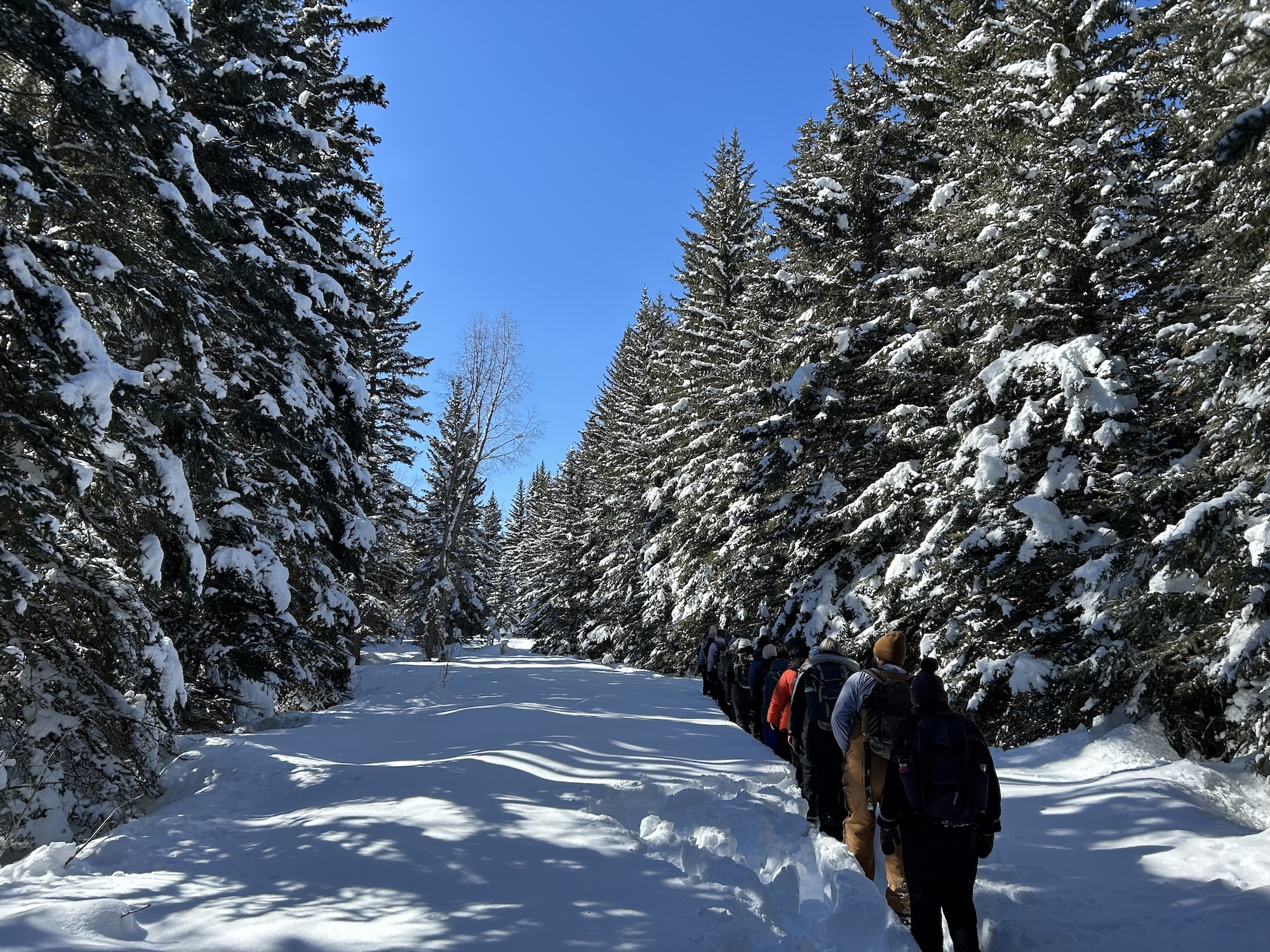
Day two featured a snowshoe walk through Grand Teton National Park, followed by an immersive scavenger hunt throughout downtown Jackson that got students interacting with local business owners and searching for other community assets. The third day’s lesson included visiting local nonprofits working to address the region's inequality and assist its burgeoning immigrant population, which allowed students to draw parallels between the Jackson area and back home: “I made so many connections from our time here . . . It's just an interesting aspect and cool kind of thing to recognize and identify'' shares Amelia.
The takeaways from the trip amongst the students were varied– some highlighted their first experience traveling by plane and taking in the majestic, singular beauty of the Tetons. Others celebrated their time together as a cohort, and the boost they received from learning collaboratively. Many had turned their eyes back to Illinois, and were excited by ways in which they could begin to apply the knowledge and experiences they encountered through Teton Science Schools. The feeling of gratitude, though, served as a through-line for all of the TARTANS.
Natalya Main, an Elementary Education Major from Peoria, Ill, appreciated how the courses they were taking back in Illinois set up their learning here: “I'm definitely thankful for my professors. They built [PBE] into the lessons that we take daily, I love it, and we can apply those lessons to things we learn here.” Abbie Johnson, a junior TARTAN, shares those sentiments, adding “I'm really grateful that we have this opportunity as TARTANS and as educators. I know that not everyone gets to do this. And as a TARTAN it's really special that we're all here. I also think that learning about a different place that's completely different than where you come from, really just opens your eyes.”
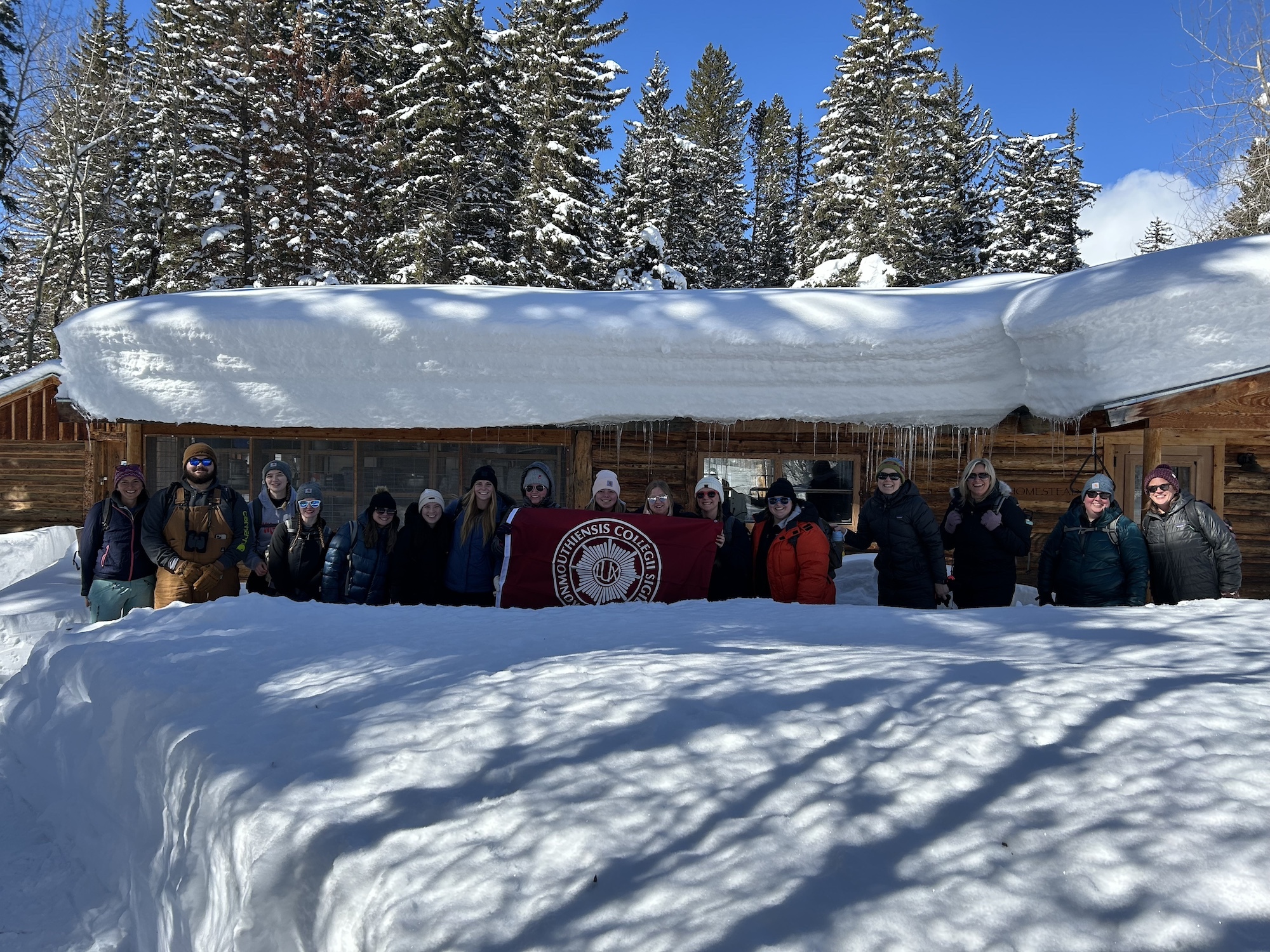
For Tammy and Leslie, that’s what this trip is all about. This trip highlights not just the value of place, but of partnership. “The partnership with Rural Schools Collaborative is really at the heart of this trip and program happening. Teton Science Schools and Monmouth College got connected by RSC, and RSC continues to inspire new ideas, partnerships, and to tell the stories of how we are working together” affirms Leslie.
Rural Schools Collaborative is grateful to Leslie Cook and her team at Teton Science Schools for hosting RSC, and to Tammy La Prad, her faculty cohort, and the TARTANS at Monmouth College for allowing RSC to join this trip.


